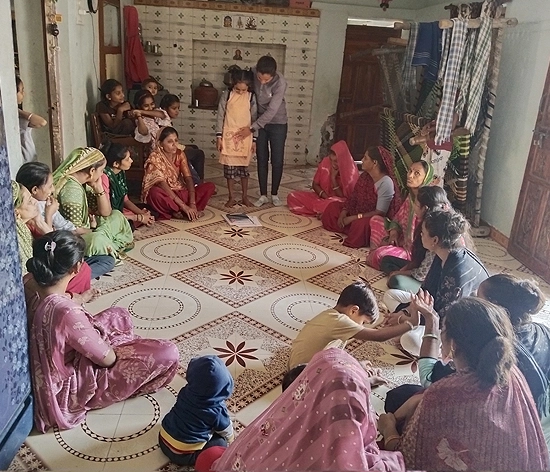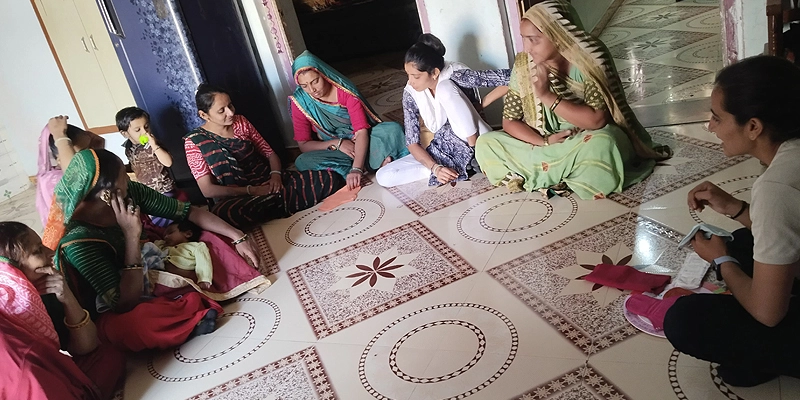
Sonalben Sabhad became a symbol of progress in the Bharwad community of the Khatdi village in Gujarat when she broke all taboos around menstruation.
Sonalben never had access to formal education. Yet, her progressive mindset led her to participate in a four-part training on Menstrual Health and Hygiene Management (MHHM). Organised by the Tata Trusts-supported Coastal Salinity Prevention Cell (CSPC), the sessions offered scientific insights into menstruation, hygiene practices, and the importance of challenging deep-rooted societal myths.
As part of the MHHM programme, the Trusts and its partners regularly conduct awareness sessions and training with women’s groups in rural areas of India. They also facilitate health check-ups for women and adolescent girls and ensure access to safe and affordable menstrual hygiene products.
From one woman to a community movement
Being a mother herself, the learnings struck a chord with Sonalben. She decided to rewrite the narrative for her daughter.
“When my daughter had her first period, she didn’t hide it in shame—she celebrated it with pride,” shares Sonalben. To mark the occasion, she distributed sweets and gifted her daughter a small piece of gold.

Word of her bold gesture quickly spread through the Bharwad community, sparking curiosity and conversations among other women in the village. Mothers who had never questioned age-old customs began rethinking the taboos they had silently followed for generations.“Women in my village havebegun discussing about menstrual health with their daughters.”, Sonalben says with pride.
What was once seen as a moment of secrecy, Sonalben transformed into a celebration of growth and empowerment. This shift in mindset also brought practical changes across the community. Women no longer hid their menstruation, they embraced it
Today, many have adopted reusable sanitary pads that are hygienic, affordable, and environmentally friendly. Equipped with knowledge, adolescent girls now dry their cloth pads openly in the sun, reducing the risk of infections.
The MHHM sessions conducted by CSPC ignited a collective movement in Khatdi village. Adolescent girls and women talk freely about their health and hygiene needs and actively seek access to menstrual hygiene products, ensuring that this transformation is not only visible but also sustainable.
Legacy of change
This story is a powerful reminder that real change begins at the grassroots. When one person dares to challenge outdated beliefs, it can spark a ripple effect, encouraging an entire community to reflect, rethink, and transform its traditions.
The women of Khatdi are now passing their learnings to the next generation. They are not just changing menstrual hygiene practices; they are rewriting the narrative. Khatdi village is no longer bound by silence, it is led by voices of knowledge, empowerment, and dignity.
